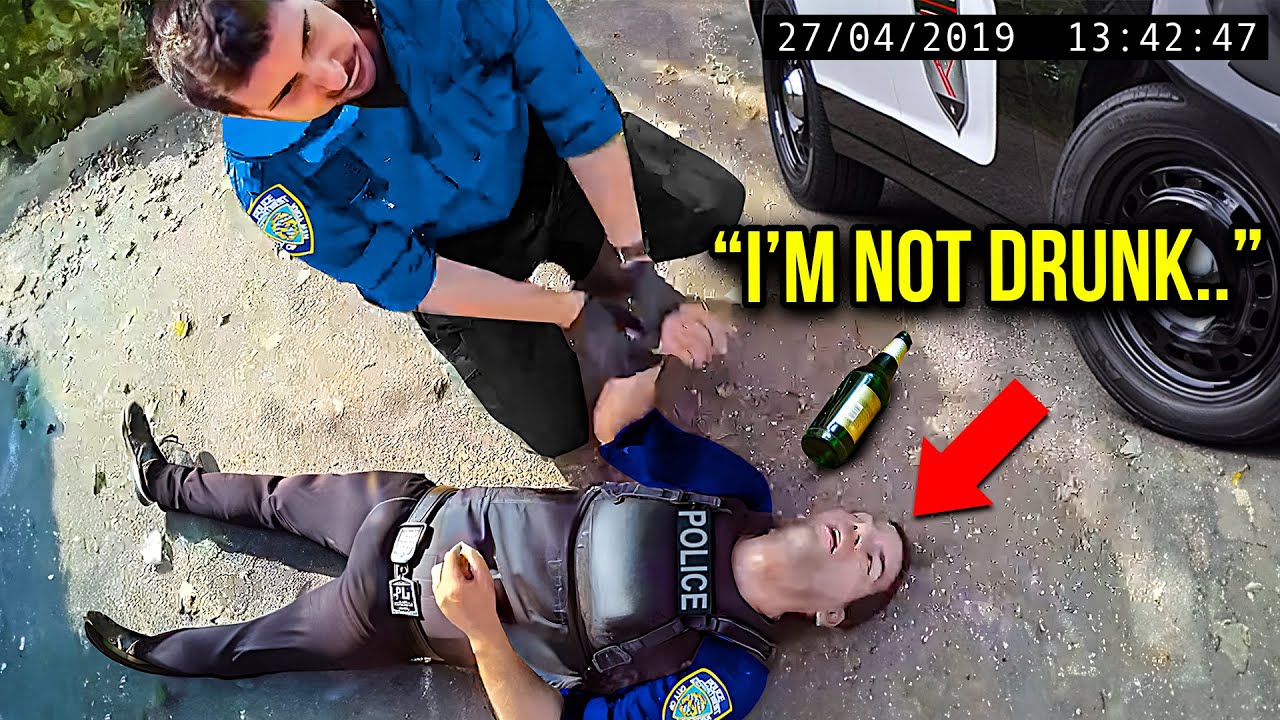-
Discussions tagged with 'professional courtesy'
-
In the past, police officers extended professional courtesy to motorists who dropped names of a police officer who they knew, were friends, or family when pulled over for a traffic infraction or even a drunk driving suspect. The traffic offense violator dropped names of a person who is a police officer who were their neighbors, friend, brothers or sisters, cousins, school class mate, a parent, aunt or uncles, cousins, extended acquaintance, or someone who they met once long time ago. There are also instances where the spouse of a motorist is pulled over by a police officer like the case in the video attached. Regardless, those days are long gone due to body cameras and dash cameras.
https://www.facebook.com/share/v/YpYd4ebNvEhbD54j/?mibextid=D5vuiz
-
Former Rio Arriba County Sheriff James Lujan, aged 60, was sentenced to three years in prison followed by one and a half years of probation after being convicted of two felony charges: aiding a felon and intimidating a witness. Lujan was found guilty of helping a former Española City Councilor evade police after a high-speed chase in 2017 and directing a deputy to conceal his actions. This conviction followed a retrial after an initial jury failed to reach a verdict. Lujan resigned from his position shortly after the conviction.
-
“Extending professional courtesy” on a traffic stop typically refers to law enforcement officers giving leniency to other officers or individuals in related professions when stopped for traffic violations. This practice is somewhat controversial and varies widely depending on jurisdiction and individual officer discretion. Here are some key points regarding this practice:
What It Involves
- Identification: The stopped individual might identify themselves as a law enforcement officer or related professional, sometimes showing a badge or other form of identification.
- Leniency: The officer conducting the stop might choose to issue a warning instead of a ticket or fine, or let the individual go without any formal action.
Reasons for Extending Courtesy
- Professional Respect: Officers may feel a sense of camaraderie or mutual respect towards fellow officers.
- Understanding of Job Challenges: An appreciation of the stresses and risks associated with law enforcement might lead to more lenient treatment.
- Internal Policies: Some departments might have unwritten policies or cultural norms encouraging such leniency.
Ethical and Legal Considerations
- Fairness: Critics argue that this practice can undermine public trust in law enforcement by creating a perception of bias or unequal treatment under the law.
- Department Policies: Some departments explicitly prohibit extending professional courtesy to ensure all individuals are treated equally.
- Legal Implications: There can be legal risks if leniency leads to subsequent incidents or if it’s viewed as official misconduct.
Examples of Guidelines
- New York City Police Department (NYPD): NYPD has specific guidelines prohibiting officers from extending or accepting professional courtesy to ensure fairness and equality.
- Los Angeles Police Department (LAPD): LAPD policies also emphasize the importance of impartial enforcement of laws, discouraging leniency based on professional connections.
Public Perception and Trust
- Transparency: To maintain public trust, many departments stress the importance of transparency and equal treatment in all enforcement actions.
- Accountability: Ensuring that all officers are held to the same standards as the public can help build community trust and accountability.
While extending professional courtesy is a practice rooted in respect among officers, it faces significant scrutiny due to concerns about fairness and public trust. Law enforcement agencies often strive to balance professional camaraderie with the need to uphold the law impartially. For more detailed information on this topic, you can refer to the guidelines and policies of specific police departments or legal analyses from reputable sources like legal journals and law enforcement ethics publications.
-
Cops are human and can make mistakes like the rest of us. However, are Cops above the law? What’s this professional courtesy among police officers? Why do Cops expect to get out of tickets and DUIs? What’s this code of silence among police officers?
https://www.facebook.com/share/v/ohutDundcae6fJpG/?mibextid=D5vuiz
facebook.com
Idiot Cops Who Got Caught DRUNK On The Job
Viewing 1 - 4 of 4 discussions

